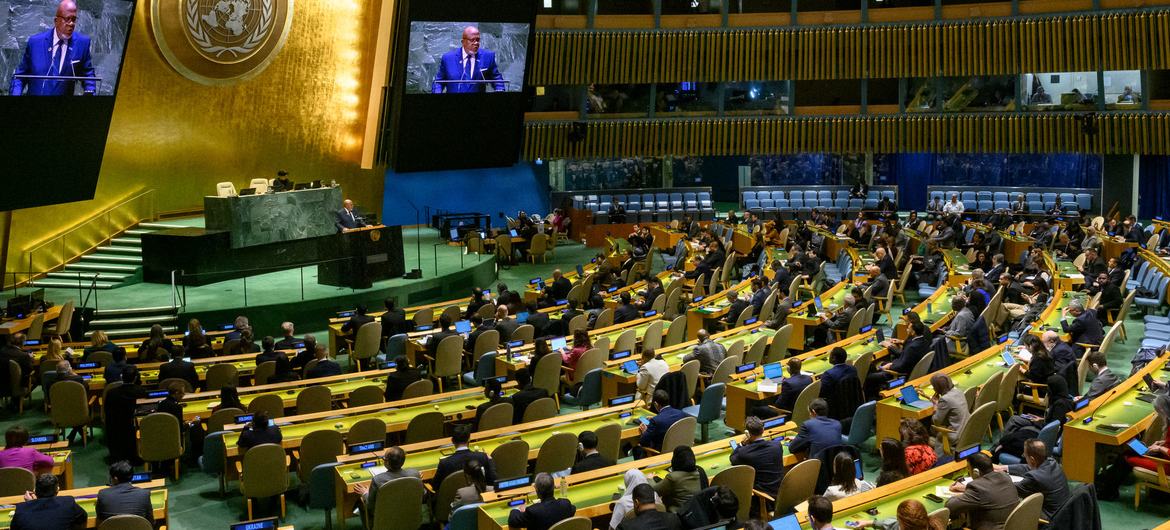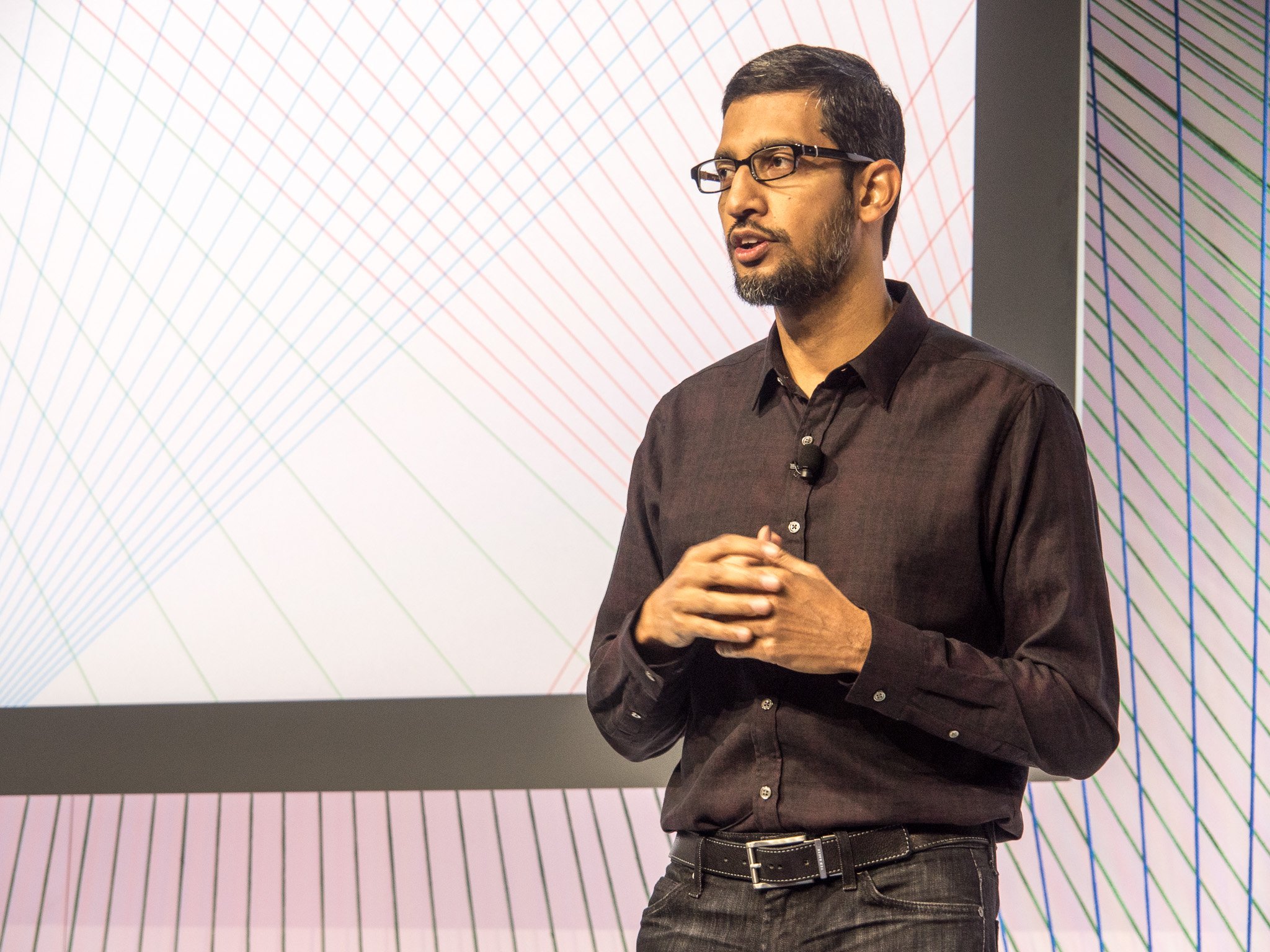Global AI resolution is a step forward, but there is a long road ahead
It's a toothless tiger — by design.

Get the latest news from Android Central, your trusted companion in the world of Android
You are now subscribed
Your newsletter sign-up was successful
The future is going to be powered by artificial intelligence (AI), and to make sure the technology benefits everyone, the United Nations recently passed its first-ever resolution on AI. This is a big deal for a hollow set of unenforceable suggestions, so let's break down what this means for you and the world.
The core message is safe, secure, and trustworthy AI. Co-sponsored by over 120 countries, the resolution emphasizes developing AI that respects human rights and promotes sustainable development. It also says AI systems shouldn't discriminate or reinforce biases and should be designed to solve problems like climate change and poverty.
Sounds good enough, right? Even so, we still have a long way to go.
What's good about the resolution

The resolution acknowledges the "digital divide" between developed and developing countries. Not everyone has equal access to technology, and the UN is calling for collaboration to ensure everyone has the chance to participate in the AI revolution. This could involve sharing resources and knowledge to help developing nations build their own AI capabilities.
The UN isn't just pointing fingers at governments here. This resolution is a call to action for everyone—countries, businesses, researchers, and even regular folks like you and me. We all have a role to play in shaping the future of AI. Because your next phone will be chock full of AI, you are doing your part even if you don't know it.
The UN's AI resolution is a positive step towards a future where AI works for everyone. By focusing on safety, human rights, and global cooperation, we can harness the power of AI to build a better world.
The resolution itself isn't a set of rules but a framework for future discussions and collaborations. It's a commitment from the international community to work together and ensure AI benefits all of humanity. We can expect to see more specific guidelines emerge in the coming years.... and that's its biggest problem.
Get the latest news from Android Central, your trusted companion in the world of Android
Toothless tiger

This resolution promoting safe and beneficial artificial intelligence was a landmark achievement. It signifies a global recognition of the need to harness AI's power for good while mitigating potential risks. However, while this is a positive step, the resolution itself has limitations that require us to keep the conversation going.
The biggest shortcoming lies in the resolution's non-binding nature. Unlike Security Council resolutions, these don't hold legal weight. This means countries with vested interests in autonomous weapons development, for example, might not feel compelled to alter course. The resolution relies on "encouragement" for responsible AI development, which has limitations.
The UN is only as powerful as the few "major" countries allow it to be. Countries like China, Russia, and the United States usually only approve and support the UN when a thing aligns with their interests. Since these countries have the power to unilaterally veto any resolution, the good intentions of other member-states mean nothing.
A nonbinding agreement that was unanimously adopted means nothing. But it's the only way a resolution like this would pass. Getting "words on paper" is an important first step towards real, meaningful work.

Without a global set of rules, each nation or governing body has to step in. We've seen this with things like the Biden Administration's recent order that ensures the NIST (National Institute of Standards and Technology) and Department of Homeland Security are working towards a way to test that AI systems are both safe and secure before they are released. This followed a (nonbinding) agreement between 18 countries declaring that AI systems be made secure by design.
The EU has also enacted legislation regulating AI, making it the first government to do so. In the landmark act, the EU also has laid the groundwork for enforcement options.
Another alternative way to self-regulate AI is what we've seen in Canada. Before the release of Google Gemini, Google met with "experts, policymakers, and regulators across different sectors" to ensure AI was responsible and worked well for the people of Canada, according to Product Manager Jules Walker.
Despite these shortcomings, the resolution is a crucial first step. It fosters international dialogue and establishes a foundation for future, more specific regulations. Here's what could be done as a next step:
- Member states can build upon the resolution by developing supplementary agreements with concrete enforcement mechanisms.
- International bodies can work towards establishing global standards for AI development and deployment.
- Developed nations can assist developing countries in building the infrastructure and expertise needed for responsible AI use.
The UN's AI resolution might not be a silver bullet; it's a call to action. By acknowledging its limitations and working towards a more robust framework, we can ensure AI becomes a force for good on a global scale.
If the world instead chooses to ignore these guidelines, we'll see an AI free-for-all where a few powerful countries and corporations decide our fate.

Jerry is an amateur woodworker and struggling shade tree mechanic. There's nothing he can't take apart, but many things he can't reassemble. You'll find him writing and speaking his loud opinion on Android Central and occasionally on Threads.
You must confirm your public display name before commenting
Please logout and then login again, you will then be prompted to enter your display name.
